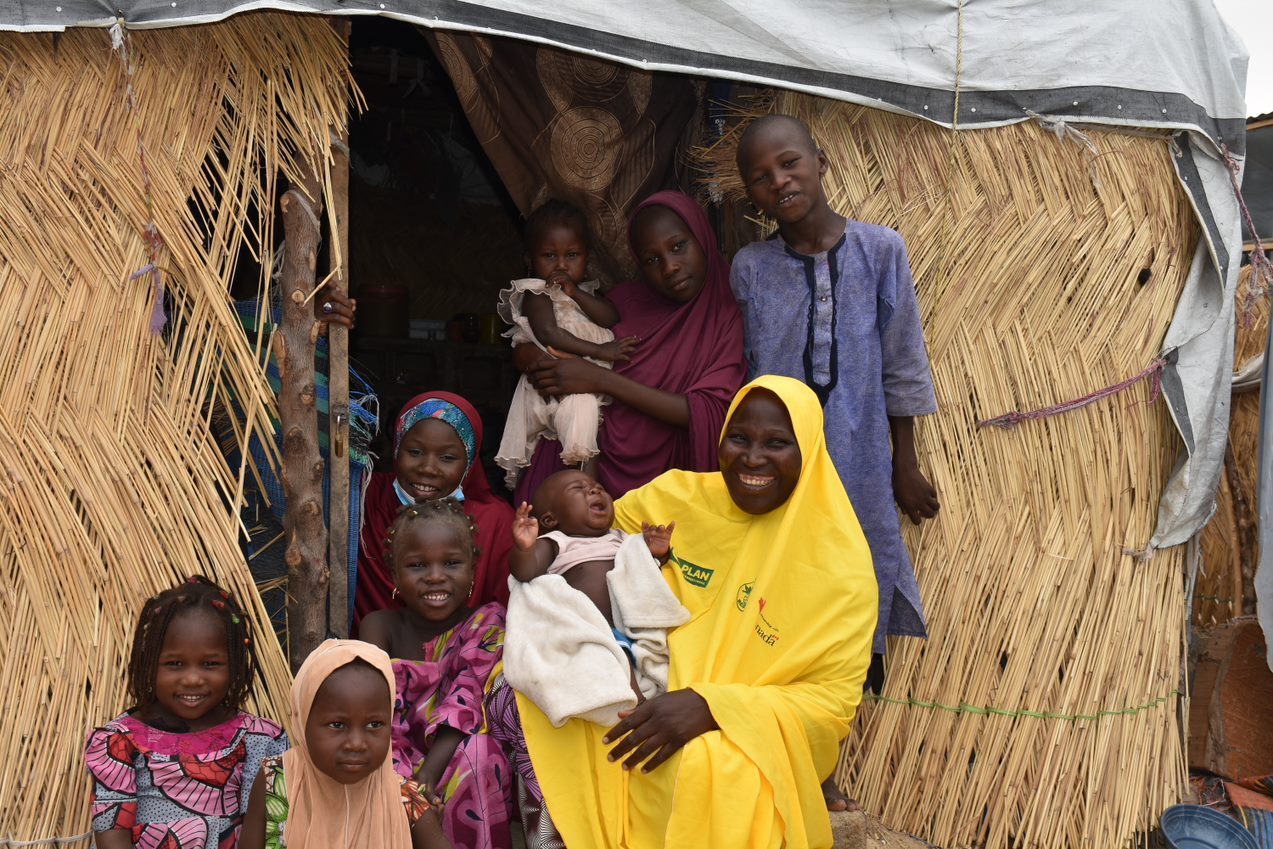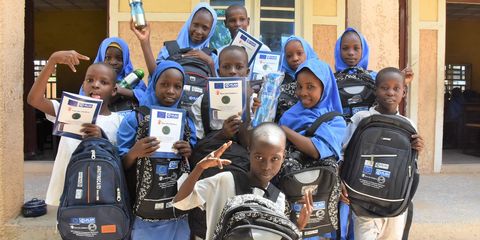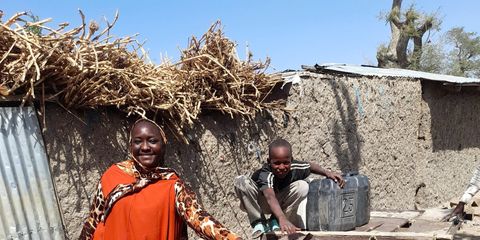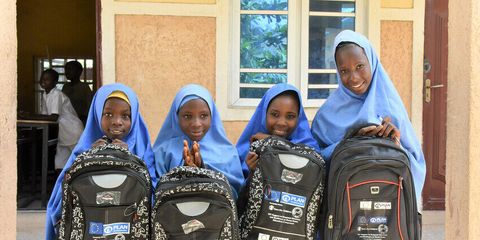Aisha develops her knowledge of sexual health
Mother of 11, Aisha, has learned about her sexual and reproductive health, developed a positive relationship with her children and started earning an income.

Aisha with her children.
Aisha is a mother of 11 children living in a camp for internally displaced people in Borno State. The camp is home to more than a thousand families who fled violence from various parts of the state for relative safety in Maiduguri.
Five years ago, she and her family lived and farmed in a mountainous community in Monguno, bordering Chad. They farmed beans, maize, onions and pepper for a living. Due to the incessant attacks by insurgents on the village and other surrounding communities, they fled.
Adapting to camp life
Now, they live at a makeshift shelter made with grass and survive under hard conditions. Despite the challenging condition of camp life, Aisha now has 11 children. “I fled my community with 8 children, but when I came into the camp, I gave birth to 3 more,” said Aisha.
“I learned a lot about family planning. How to access it, where to access it, and when to access it. I was never in support of it before.”
Aisha
Aisha came into contact with Plan International through community volunteers when she was pregnant with her 11th child. She immediately started to attend safe space activities organised by Plan International, and has learnt information about family planning and access to relevant products.
Family planning support
“We usually meet with other women and Plan International staff dedicate their time to teach us a lot,” she said. “I learned a lot about family planning, how to access it, where to access it, and when to access it. I was never in support of it before.”
Aisha said, “Before now, we were told that family planning is very harmful, and it was a deliberate way to stop women from giving birth completely.”
Since joining Plan International’s safe space activities, Aisha has been accessing sexual and reproductive health services. “I am just coming from the health facility where I was referred to that Plan International is supporting with contraceptives,” she said.
Positive parenting
Aisha has also changed her relationship with her children. “I used to be hot-tempered and I beat up my children mercilessly when they did something wrong, but through positive parenting sessions I began to draw my children close. We even eat together. I am now closer to my children, especially the girls so that in case they are harassed or abused, they won’t feel scared of telling us,” she declared.
Aisha is generating an income, and has received cap making materials and tools. She also received a dignity kit, along with other women in the camp.
“I am currently into the cap knitting business and happy that it is helping me generate an income to support my family.”
Plan International began a protection and health project at Aisha’s camp in July 2021, in partnership with Rehabilitation, Empowerment for Better Health Initiative. The project is supported by caseworkers, community volunteers, women’s groups, community-based child protection committee members and peer group educators who were trained on gender-based violence, protection and sexual and reproductive health and rights.
Categories: Early childhood development, Emergencies, Sexual and reproductive health and rights, Skills and work


